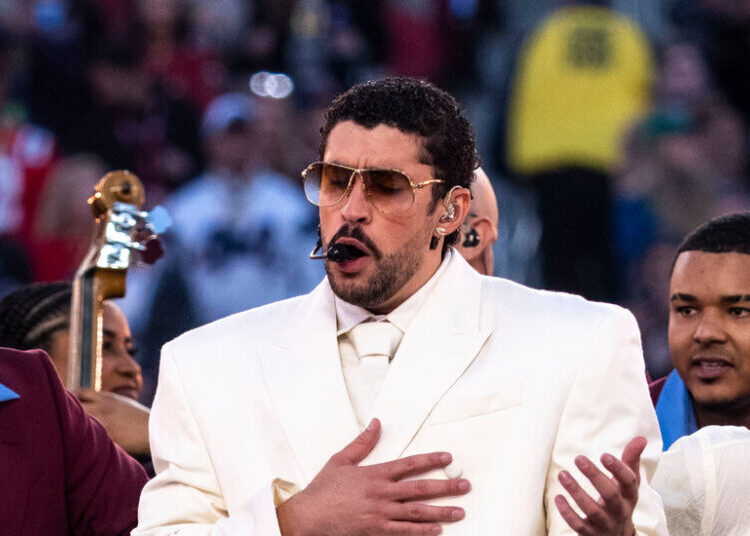It was kind of cute when Aaron Terrazas’ retired parents first started gifting him and his siblings various items and trinkets they’d accumulated from their travels over the years. But the little handoffs pretty quickly crossed into very annoying territory. “It just became more stuff that filled up our homes that we didn’t need or have space for,” Terrazas, a 40-year-old economist in Seattle, says.
While he understands that this is perhaps his parents’ way of showing love, he had to explain that these objects were their memories, not his. If they gave him things he didn’t want, he finally said, he’d refuse them. That knickknack his mom sent would go right back in the mail to her. The family made a rule: The only gifts allowed are ones that can be eaten or consumed. Terrazas’ parents abide by it “for the most part,” he says, but “sometimes they need a reminder.”
Terrazas is not alone: the baby boomer stuff avalanche is upon us. Just as boomers and the Silent Generation are expected to pass on some $100 trillion in wealth to younger generations in the coming years, as I wrote last year, they’re also expected to pass down the mounds of possessions they’ve accumulated over their lifetimes. Ideally, Mom and Dad and Grandma and Grandpa would downsize well in advance, but alas, life is not ideal — the issue is often dealt with in a tizzy, in the midst of a medical emergency or after a person has passed.
Older generations sometimes engage in a trickle of giving, gradually passing possessions to family members . It can be nice to offload some important things, especially while people are still around to explain their stories and significance. But it can also lead to some uncomfortable encounters, where family members fight over coveted items, things start to disappear, or, more often, parents and grandparents discover that their prized possessions are not prized by their offspring.
“I do encourage my clients to ask their kids or whoever they want their stuff to go to, ‘Are there things you want?” says Connie Tromble Eyster, an estate planning attorney in Colorado. “A lot of the time, the response from the kids is, ‘I don’t want anything.'”
The delicate dance around family dynamics of inheritance and gift-giving among generations is an awkward one for a multitude of reasons, perhaps most importantly, that nobody really wants to think about their ultimate demise or that of their loved ones.
“We act like we’re immortal, and we’re not,” says Kevin C. Martin, an estate attorney in Washington, DC. He’s seen “beautiful meetings” with families talking about who wants what and why, whether to put it in wills or to deal with it in the present day, “but not everybody is comfortable doing that.”
A lot of the time, the response from the kids is, ‘I don’t want anything.’
As part of her work as a professional downsizer and the owner of the Downsizers in North Carolina, Elizabeth Hirsh has been a part of a lot of difficult conversations. In them, she talks a lot about what she calls “the psychology of letting go.” She asks clients to interrogate why they’re so insistent on keeping something or making sure someone in the family takes it. Does this silver your mother left to you really speak to you? Do you worry that if you get rid of it, your mother’s memory won’t be kept alive? Did you hold onto it out of guilt that you’re now inadvertently passing on to your daughter? Or, does giving it to her just feel like the easiest option — for you?
“We talk a lot about the cost of carrying things on,” Hirsh says.
Baby boomers grew up in an era where it was expected to accumulate as much as possible; they were collectors. They were also raised by parents who grew up in the Great Depression and were disinclined to give up the few things they had. So when it comes time to shed their worldly possessions, boomers sometimes need a gentle reality check. Like it or not, there are things that are irreplaceable — photos, awards, diplomas — and other things that are commodities. Asking a family member to take anything requires time and effort, whether that means them finding a place for your favorite knicknack or you paying hundreds of dollars to ship an unwanted bedroom set cross-country.
Hirsh says clients often need to be reminded that when they do give things away, they don’t have a say after the fact about what the recipient does with them. “It can’t be a conditional gift,” she says.
As much as boomers need to accept some hard truths, their kids do too. She reminds sons and daughters that as long as their parents abide by the “out of my house, out of my control” rule, it’s sometimes easier to just take the thing and move on. Kids think they’re being selfless by declining gifts and don’t realize their parents may receive that as hurtful.
I almost need my mom to say, ‘You don’t have to keep that anymore, honey.’
Jeffrey and Elaine Karr, septuagenarians who live in California, don’t think they’re too overloaded by possessions, and they’ve already started passing some important things down to their niece and nephew, whom they jokingly refer to as their “rent-a-kids.” They donated their wedding china, gave their niece and nephew some jewelry so they could refashion the stones if they wanted, and shipped Elaine’s silver to her cousin to replace a stolen set. As much as they say they’re not too attached to their stuff, Elaine admits she’s saving some heirlooms, including a needlepoint her deceased mother made, in the garage that she’s not quite sure what to do with.
“It will never go out to be displayed. What am I going to do with it? And what will my niece do with it? I should let it go,” she says. “I almost need my mom to say, ‘You don’t have to keep that anymore, honey.'”
Some of the anticipatory offloading older people do can be much more complicated, financially, than deciding whether a loved one wants dishes or souvenirs.
Gerry W. Beyer, a law professor at Texas Tech University, warns clients they have to be careful about giving away anything of value — say, a coin collection, or art — because of taxes. In most cases, capital gains taxes mean it makes sense to hand things down after death since heirs can use the stepped-up cost basis, meaning they’re only taxed on the difference between the value at the time they inherited the item and what they sell it for, not on the appreciation over the original owner’s lifetime. Say your grandfather bought some art for $100 in 1960, and it’s now worth $25,000. If he gifts it to you before he dies, and you turn around and sell it for $30,000, you have to pay taxes on all $29,900 worth of gains — the difference from the original purchase price and the final sale price. But if it’s passed on to you after he dies, the value resets to $25,000, so if you go on to sell it for that $30,000, you’d only be taxed on the $5,000 gain, not the other $24,900 in appreciation that occurred during his life.
It’s a similar story with putting children on house deeds, which some parents may think is a good idea. When the house sells, the kid will be on the hook for a higher capital gains tax than they would have otherwise — not to mention that if the kid winds up in financial trouble, creditors could try to take the house.
Unless you’re extremely wealthy so that it wouldn’t make any difference, you’ve got to be careful about giving cash to kids and grandkids.
People can give up to $19,000 to a single person each year without having to report it to the IRS, and for the vast majority of people, except the ultrawealthy, paying inheritance taxes isn’t an issue. But attorneys still warn against people giving too much of their cash away to loved ones while they’re still alive — once that money’s out the door, it’s generally not coming back.
“Unless you’re extremely wealthy so that it wouldn’t make any difference, you’ve got to be careful about giving cash to kids and grandkids. First of all, it can absolutely cause jealousy among the kids unless you give everybody the same amount,” Beyer says. “And then things can change. You could be diagnosed with a serious disease, you could have a loss not covered by insurance.”
Many attorneys I spoke to for this story flagged concerns about elder abuse and shady financial maneuvering that leaves older people on the short end. Sometimes, that looks like a will being altered when someone isn’t about their wits. At other times, it can involve possessions slowly disappearing over time without it being clear where those things are going. It’s often unclear whether strangers are taking them or family members, or if items were given away intentionally or not.
“These types of things, believe it or not, unfortunately happen regularly,” says Elizabeth Garlovsky, a trust and estates attorney in Illinois.
Human beings place a lot of importance on their possessions. We’re prone to the endowment effect, where we place a higher value on things we own. We associate things with memories, people, and feelings. We can also tend to be a bit of a selfish breed. Inheritance, including passing down objects when someone is still alive, mixes all those impulses together. Money and possessions aren’t personal on their own, but in context, they’re among the most personal things there are.
Garlovsky tells me conversations with clients about getting rid of their stuff go well about one out of 10 times she has them. “If they’re still living in their homes, they like looking at their things, they like their furniture the way it is, and they don’t have, frequently, the energy or even sometimes maybe the ability to dig through the boxes in the basement,” she says.
The path of least resistance can feel like simply putting it off — who among us enjoys cleaning out our homes, let alone contemplating our impending deaths? And if they think there will be conflict in the family over who gets what, in terms of money or property, people might rather incur the wrath once they’re no longer around to be on the receiving end of it. There’s also only so much people can give away while they’re still around.
“Ahead of time, they’re not giving away all of their stuff, they’re maybe just giving away some of their stuff, so all the cards are not on the table,” Eyster says.
You don’t want Grandma sitting alone in an empty house. Still, you can try to encourage grandma to make specific lists of who gets the grandfather clock and diamond ring and kitchen hutch later — assuming anybody wants it.
As for what to do, most downsizers advise saying no to storage units — if you don’t want that furniture now, you won’t want it after incurring $10,000 in storage fees. Attorneys say to talk about who gets what early and have the uncomfortable conversations that need to be had. Just because something doesn’t stay in the family doesn’t mean it can’t find another happy home. At some point, many people will find themselves in a sort of intergenerational stuff limbo — the older generations want to pass their things on, the younger generations don’t want most of it, and everybody feels bad about it.
For the older people: If your niece does say yes to that costume jewelry you give her over the holidays, don’t ask next year what she did with it. For the younger people: You can say no, especially if it’s a big thing, but maybe you just want to say yes and make a quick trip to Goodwill to drop it off in the New Year.
Emily Stewart is a senior correspondent at Business Insider, writing about business and the economy.
Read the original article on Business Insider
The post The Boomer Stuff Avalanche is already crushing families appeared first on Business Insider.




